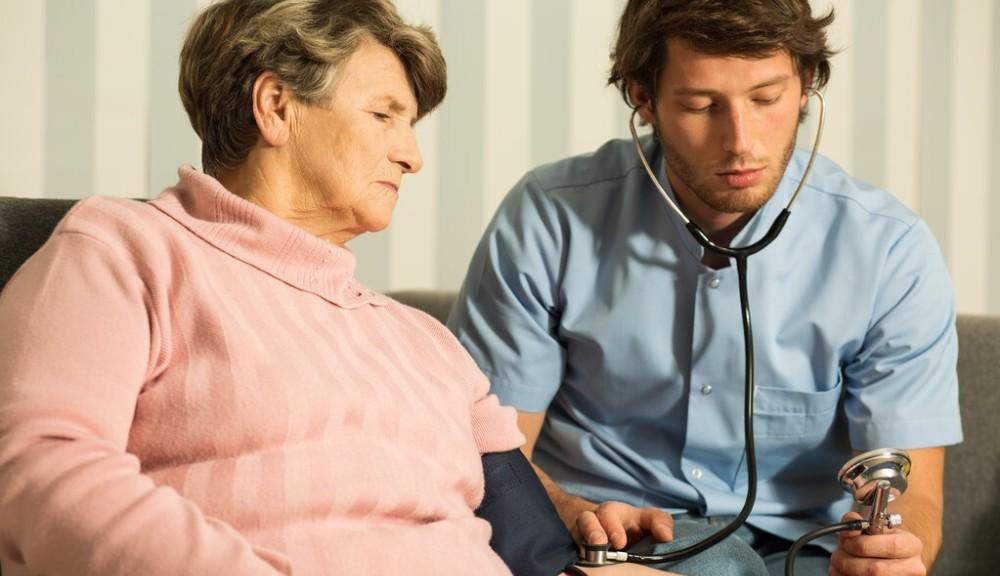A friend asked Huazi, often see an article that exercise can treat high blood pressure, this matter is not reliable? What is the effect of exercise to lower blood pressure, and what is the best exercise to do? Huazi said that exercise does have the effect of lowering blood pressure, and the effect is comparable to that of first-line antihypertensive drugs.
Some do not have high blood pressure above 160/100mmHg, and even can control blood pressure by just exercising, and are exempt from taking antihypertensive drugs. However, for most people, while maintaining exercise, they still need to take regular medication to control blood pressure.

First, exercise antihypertensive and drug effect is comparable
In related studies, consistent exercise has a significant antihypertensive effect on patients with hypertension. Systolic blood pressure (high pressure) can be reduced by 10 to 15 mmHg; diastolic blood pressure (low pressure) can be reduced by 5 to 10 mmHg. When first-line antihypertensive drugs are used alone, the average pressure can be reduced by 7 to 10 mmHg, and the low pressure can be reduced by 3 to 5 mmHg.
That is to say, the antihypertensive effect that exercise can achieve is actually higher than that of first-line antihypertensive drugs. However, most patients with hypertension do not exercise standards, or the initial blood pressure value is high, relying only on exercise can not control blood pressure, still need to maintain regular medication.
Second, aerobic exercise and resistance training
Exercise lowers blood pressure, which is divided into aerobic exercise and resistance training. Aerobic exercise refers to the full supply of oxygen during exercise, the aerobic metabolism of body muscles, and the long-term, low-intensity, continuous exercise, which can better consume excess calories in the body and exercise cardiopulmonary function well.
For example, brisk walking, jogging, cycling, swimming, aerobics, badminton, table tennis and other sports are aerobic exercises.
Resistance training refers to exercising with muscles to overcome resistance. Resistance can come from instruments, such as lifting dumbbells, pullers, etc.; resistance can also come from itself, such as push-ups, sit-ups, etc.
Third, the exercise needs to meet the standards to reduce the pressure
Someone told Hanako that he exercised every day, but it had no effect on blood pressure at all. Hanako asks him what exercise he does, and he says he goes out for a walk after dinner. Huazi told him that the intensity of the exercise he did was too low, and he wanted to use exercise to reduce blood pressure, and the intensity must be up to standard.
Aerobic exercise: Keep exercising time at 30 to 60 minutes a day, preferably done at one time. If physical strength does not allow, it can also be carried out in sections, but each aerobic exercise should not be less than 10 minutes. The intensity of aerobic exercise can be estimated with heart rate, so that the heart rate reaches "170-age". For example, for a 50-year-old person, the standard heart rate of aerobic exercise is 120.
Resistance training: 2 to 3 times a week, you can use instruments, dumbbells, elastic bands, etc., to choose different actions, exercise the muscles of the whole body, the action is repeated about 8 to 12 times so that the muscle fatigue is 1 group. Different movements, practice 2 to 3 sets at a time.
Fourth, the attention of patients with hypertension when exercising
1, control blood pressure: before exercise to measure blood pressure, if blood pressure exceeds 160mmHg is not recommended for exercise. You need to use medication to control your blood pressure below 160 mmHg before exercising. If you have coronary heart disease, myocardial infarction, cerebral infarction, heart failure and other diseases, you need to find a doctor to assess the risk of exercise, confirm that there is no problem and then exercise.
2. Do a good job of warming up: move the joints of the body before exercise, and stretch the muscles after exercise to avoid sports injuries. People who have not exercised for a long time should start exercising step by step, and then increase the amount of exercise after adaptation.
3, do not be strong: aerobic exercise should not exceed 1 hour, otherwise it will be too late, it is possible to hurt yourself; resistance training should not exceed your own ability, do not do the action that requires holding your breath and too strong explosive force, to avoid inducing cardiovascular accidents because of sudden force.
4, long-term persistence: exercise antihypertensive can not be achieved overnight, you need to adhere to the regular exercise for a long time, in order to produce a hypotensive effect. In general, at least 4 to 6 weeks of exercise should be continuously adhered to before a decrease in blood pressure will be seen.
5. Sports contraindications: If there is fundus hemorrhage, renal insufficiency, diabetic foot, acute infection, aortic stenosis and other diseases, it is not recommended to exercise, or exercise according to medical advice.
To sum up, exercise can lower blood pressure, and the antihypertensive effect is comparable to that of first-line antihypertensive drugs. However, when exercising, aerobic exercise is required to cooperate with resistance training, and it is necessary to achieve the corresponding intensity and long-term persistence to exert a hypotensive effect. Pay attention to protect yourself when exercising, and people with high blood pressure or contraindications should not exercise aggressively.
For most patients with hypertension, exercise can assist in lowering blood pressure and reduce the amount of antihypertensive drugs, but it is not a complete replacement for antihypertensive drugs. Maintaining regular medication is still the best means to control blood pressure. If you have any questions about medication, consult your doctor or pharmacist. I am a pharmacist Huazi, welcome to follow me and share more health knowledge.